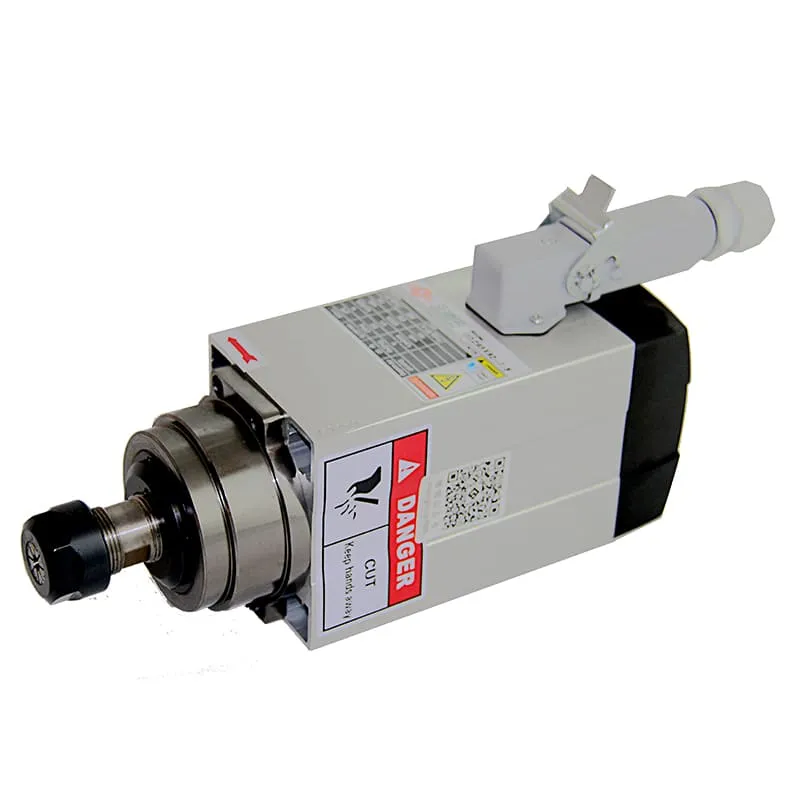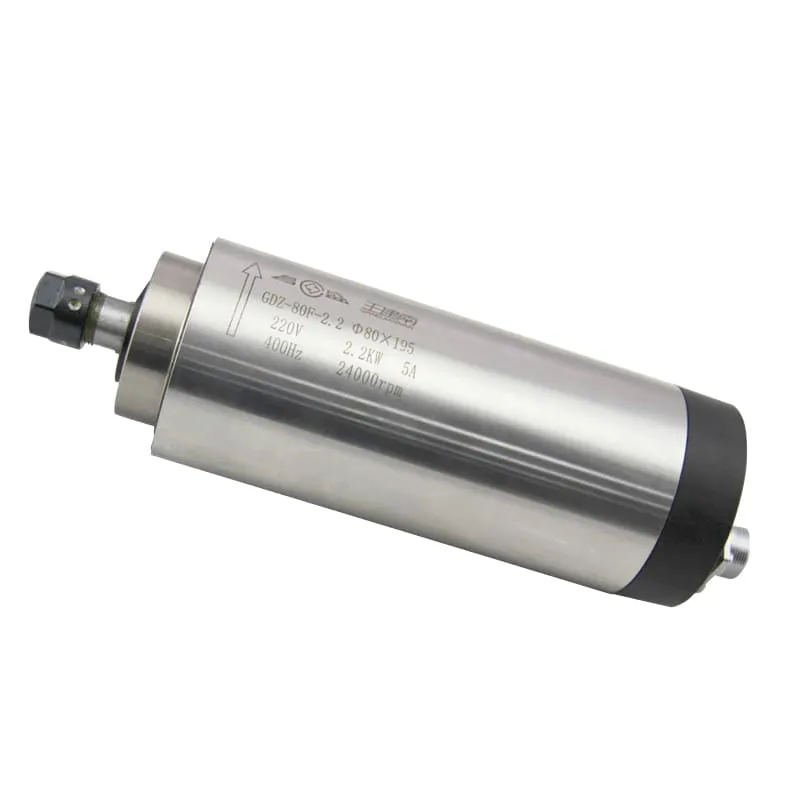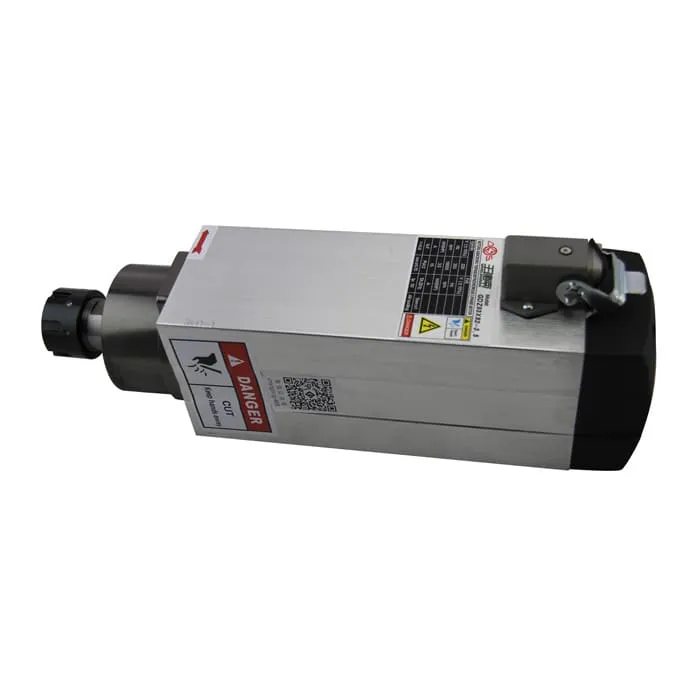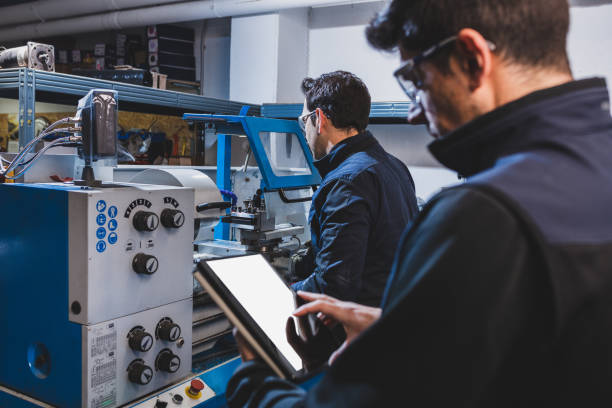How to Start a CNC Business
Starting a CNC business can be an incredibly rewarding venture. With the rise of small-scale manufacturing and a growing market for custom machined products, there’s never been a better time to enter the CNC industry. Whether you’re looking to cater to hobbyists, craft unique wooden pieces, or supply precision parts to larger manufacturers, CNC machining provides a wide range of business opportunities. In this guide, we’ll explore the essential steps to get your CNC business up and running successfully, including equipment, marketing, business planning, and customer acquisition.
Why Start a CNC Business?
A CNC business involves using computer numerical control (CNC) machines to produce parts for various industries such as automotive, aerospace, or even home crafting. There are numerous advantages to starting a CNC business. The growing demand for custom parts, the ability to work with different materials, and the flexibility to offer a range of services—like cutting, engraving, and milling—make CNC a promising opportunity for aspiring entrepreneurs.
Some of the advantages of starting a CNC business include:
- Flexibility: CNC allows for the creation of a wide range of products, from cnc wood items to metal parts, depending on the tools and machines you have.
- High Precision: With CNC, you can offer high-precision parts, which is critical in industries that require tight tolerances.
- Scalability: A CNC business can grow from a small workshop into a large-scale manufacturing plant, depending on the market demand and your aspirations.
To get started, you’ll need a solid understanding of CNC machining, a business plan, and the right equipment.
Explore our wide range of CNC spindle motors to ensure optimal performance in your machining operations.
Creating a CNC Business Plan
1. Defining Your Business Goals
Before diving into buying equipment or leasing space, it’s essential to outline your business goals. These goals will help guide your decisions and give you a clear path to follow.
- Target Market: Are you aiming to serve local hobbyists or large manufacturing companies? Defining your market will help determine the types of CNC machines you need.
- Product Focus: Will your CNC business focus on woodworking, metal parts, or custom engravings? Focusing on a niche can help you stand out and attract specific customers.
- Growth Plans: Do you want to start small and eventually scale up, or are you aiming to invest heavily upfront to attract large clients? Your growth plan will affect your business’s structure and financing.
2. Market Research
Market research helps you understand who your customers are and what they need. Analyze your competition and assess the demand for CNC services in your area. This will help you figure out how to position your business and what types of services will be most profitable.
- Identify Competitors: Look for existing CNC businesses in your region. Research their pricing, services offered, and market reach.
- Customer Pain Points: Talk to potential customers to understand what they are missing from their current CNC suppliers. This insight can help you find a niche market.
Check out our 1.5KW ER20 Square Air-Cooled Spindle for enhanced precision in small-scale machining projects.

Setting Up Your CNC Workshop
1. Choosing the Right CNC Machine
The type of CNC machine you choose will largely depend on the kind of products you intend to create and the materials you plan to work with. Below are a few types to consider:
- CNC Routers: Ideal for woodworking and can handle a variety of other materials like plastic. These machines are perfect for creating custom signs, furniture, and detailed engravings.
- CNC Mills: These are more versatile and can cut metals, making them suitable for precision parts for industries such as automotive or aerospace.
- CNC Lathes: Great for making cylindrical parts, such as shafts or custom fittings.
When choosing a CNC machine, consider the size, power, and precision required for your projects.
2. Spindle Motor Selection
The spindle motor is one of the most critical parts of a CNC machine, as it determines how effectively your machine can cut and shape materials. Selecting a powerful and reliable spindle will improve the quality of your final products and increase efficiency.
- Air-Cooled vs. Water-Cooled Spindles: Air-cooled spindles are easy to install and require less maintenance, while water-cooled spindles can handle more extended running times with better cooling.
- Power Requirements: Depending on the materials you plan to work with, select a spindle that provides enough power. For example, working with metal requires a higher power spindle compared to woodworking.
Consider our 2.2KW ER16 Air-Cooled Spindle for versatility in handling different materials.

3. Essential Tools and Accessories
Besides the CNC machine itself, there are other essential tools and accessories you’ll need to get started:
- Clamps and Vises: To secure the workpiece firmly to the machine bed.
- Cutting Tools: Different end mills, drill bits, and specialty cutters are needed depending on the material you are machining.
- Tool Holders: To ensure stability during the cutting process.
Learn more about the best spindles for CNC router projects that can enhance your business productivity.
Selecting Materials and Sourcing Suppliers
1. Material Selection
The choice of materials is crucial in determining the kind of projects you can undertake. CNC machines can work on a wide range of materials, including:
- Wood: Different types like hardwood, plywood, and MDF. Wood is excellent for custom signs, furniture, and craft items.
- Metals: Such as aluminum, brass, and steel. Metal is ideal for precision parts in automotive and aerospace industries.
- Plastics: Materials like acrylic, polycarbonate, and nylon are used for a variety of custom parts.
Each material comes with unique characteristics. For instance, metals require more robust spindle motors, whereas wood is more forgiving and can be machined at higher speeds.
2. Finding Suppliers
To keep costs down and ensure material availability, find reliable suppliers who offer quality materials at competitive rates.
- Local vs. Online Suppliers: Local suppliers may provide quicker delivery times, while online suppliers might offer more competitive pricing.
- Establish Relationships: Building good relationships with suppliers can lead to discounts and priority service, which will be crucial as your business scales.
Explore our 3.5KW ER25 Air-Cooled Spindle to handle a wide variety of materials effectively.

Marketing Your CNC Business
1. Building an Online Presence
In today’s digital world, having an online presence is essential for attracting customers to your CNC business.
- Website: A professional website showcasing your products, services, and contact details will serve as the first point of contact for many of your clients. Include a gallery of past projects to showcase your capabilities.
- Social Media: Platforms like Instagram, Facebook, and Pinterest are excellent for showcasing creative projects, particularly those involving custom wood or metal designs.
- SEO Strategies: Optimize your website content with relevant keywords such as CNC machining services, custom CNC parts, and precision machining to make your website more discoverable.
2. Networking and Local Marketing
Besides online marketing, connecting with local businesses can provide a steady flow of customers.
- Partner with Local Businesses: Establish partnerships with local machine shops, furniture makers, or manufacturers that might need custom parts. Offer them competitive rates in exchange for consistent orders.
- Trade Shows and Exhibitions: Participating in trade shows allows you to network with industry professionals, display your work, and gain visibility.
Discover more about our CNC Spindle Motors to ensure your projects are of the highest quality and appeal to customers.
Pricing Your CNC Products and Services
1. Understanding Costs
Setting the right price for your CNC products and services is crucial for ensuring profitability while remaining competitive.
- Material Costs: This includes the raw material you’re using, the waste generated, and the consumables like cutting tools.
- Machine Costs: Consider the wear and tear of the machine, energy consumption, and maintenance costs.
- Labor Costs: Whether you’re a one-person operation or have a small team, include the cost of labor in pricing calculations.
2. Establishing Pricing Models
- Per Hour of Machine Time: Charge based on how many hours it takes to complete a job, including setup and finishing.
- Per Part Produced: For high-volume production, charging per piece produced often makes more sense. This approach encourages larger orders.
- Specialty and Custom Work: Custom work should be priced higher, as it often involves more complex designs and a greater degree of customization.
Consider using our 2.2KW ER20 Air-Cooled Spindle for efficient production to maximize profitability.
Challenges in Running a CNC Business and How to Overcome Them
1. Initial Investment Costs
One of the biggest challenges in starting a CNC business is the initial investment. CNC machines, spindle motors, and essential accessories can be costly.
- Solution: Start small with a basic machine, and add more specialized equipment as your business grows. Many entrepreneurs start with second-hand CNC machines to reduce initial costs.
2. Finding Skilled Workers
Hiring skilled workers who understand CNC programming and machine operation can be a challenge, especially in smaller markets.
- Solution: Consider training employees yourself. Many CNC courses are available online that can help your workers understand the basics, allowing you to build a skilled team.
Conclusion: Starting a CNC Business
Starting a CNC business requires careful planning, market research, and an investment in the right equipment. By understanding the industry, choosing the appropriate CNC machines, creating a solid business plan, and effectively marketing your services, you can create a successful and profitable CNC venture. The flexibility and wide range of potential applications make CNC machining an attractive business opportunity for those willing to put in the effort.
Investing in the right equipment, such as our CNC spindle motors, is crucial for providing top-quality services that satisfy customer demands and keep them coming back.
FAQs
1. How much does it cost to start a CNC business?
The cost of starting a CNC business varies based on the type of equipment you choose. On average, you can start with basic CNC machines for $10,000 to $50,000, depending on whether you buy new or used equipment.
2. What CNC machine is best for beginners?
For beginners, a CNC router is a good starting point, especially for woodworking. It’s relatively easy to use and can handle a variety of materials like wood and plastic.
3. How can I find clients for my CNC business?
Online marketing, networking with local businesses, attending trade shows, and using social media are effective ways to find clients for your CNC business.
4. Is CNC machining profitable?
Yes, CNC machining can be highly profitable if you manage costs effectively, find the right market, and offer high-quality, precise parts that customers need.
5. Do I need a business plan to start a CNC business?
Absolutely. A business plan will help you outline your goals, understand your market, and structure your finances to ensure you have a successful start.

